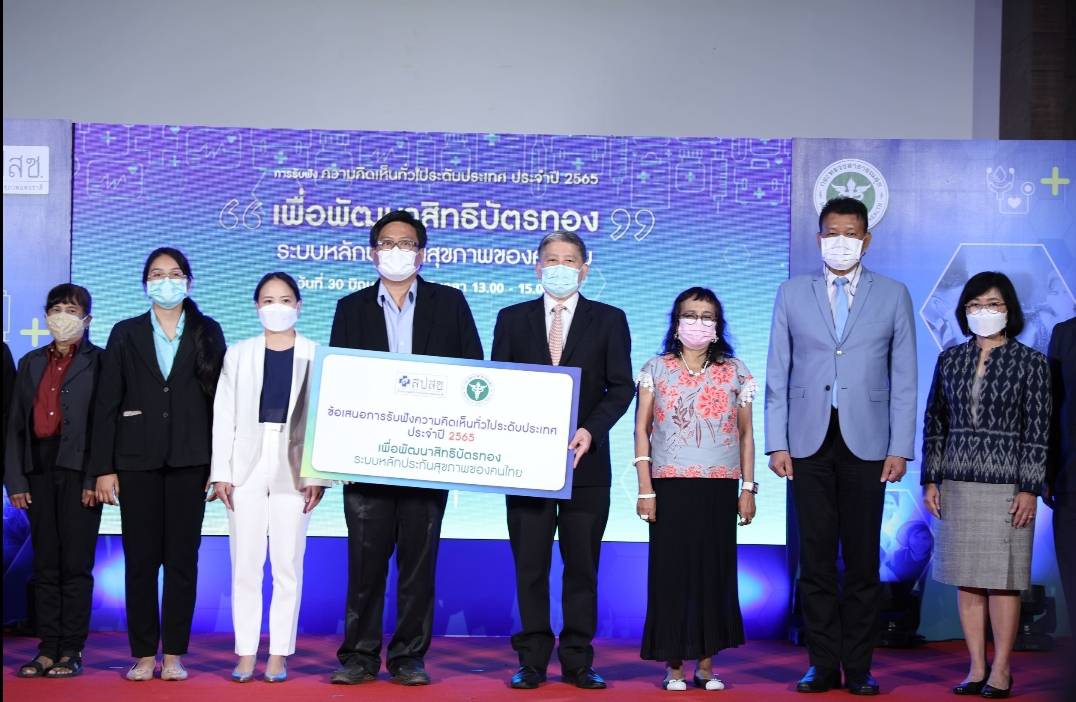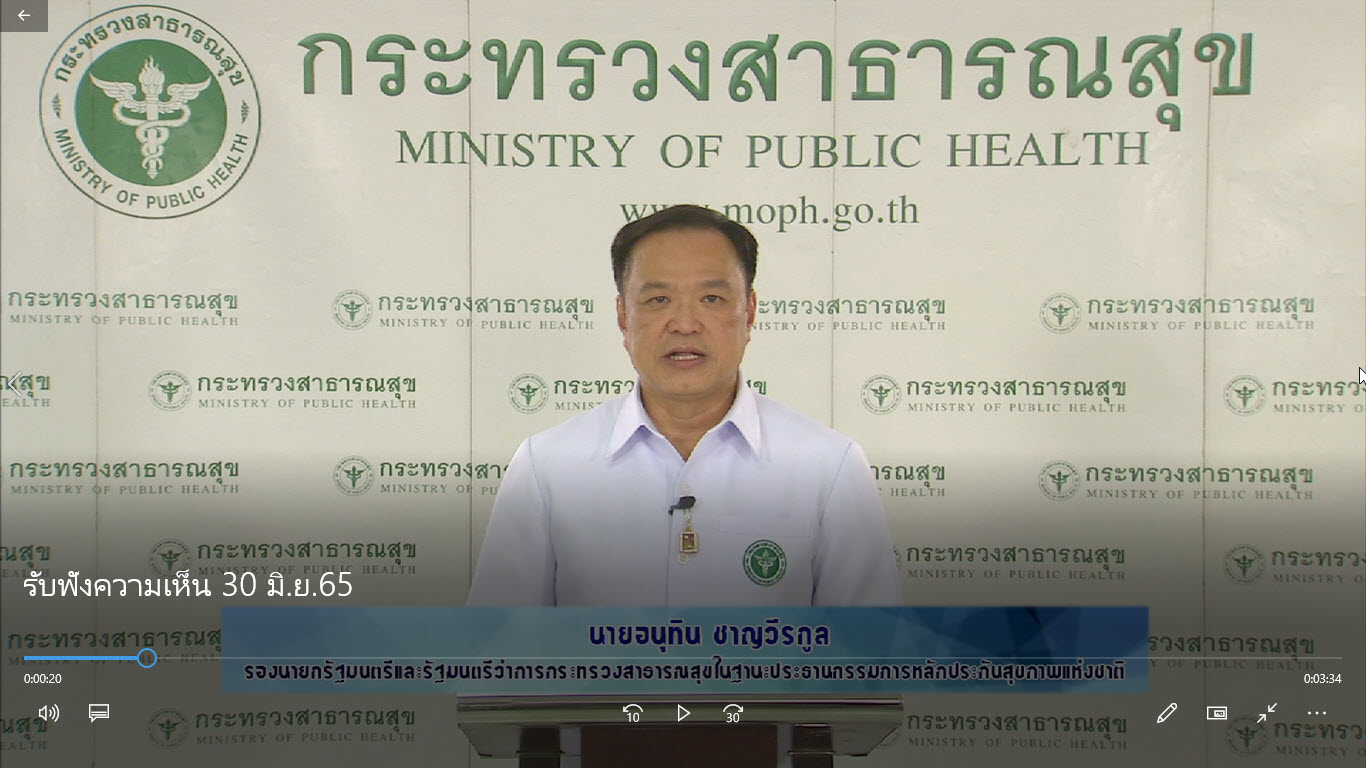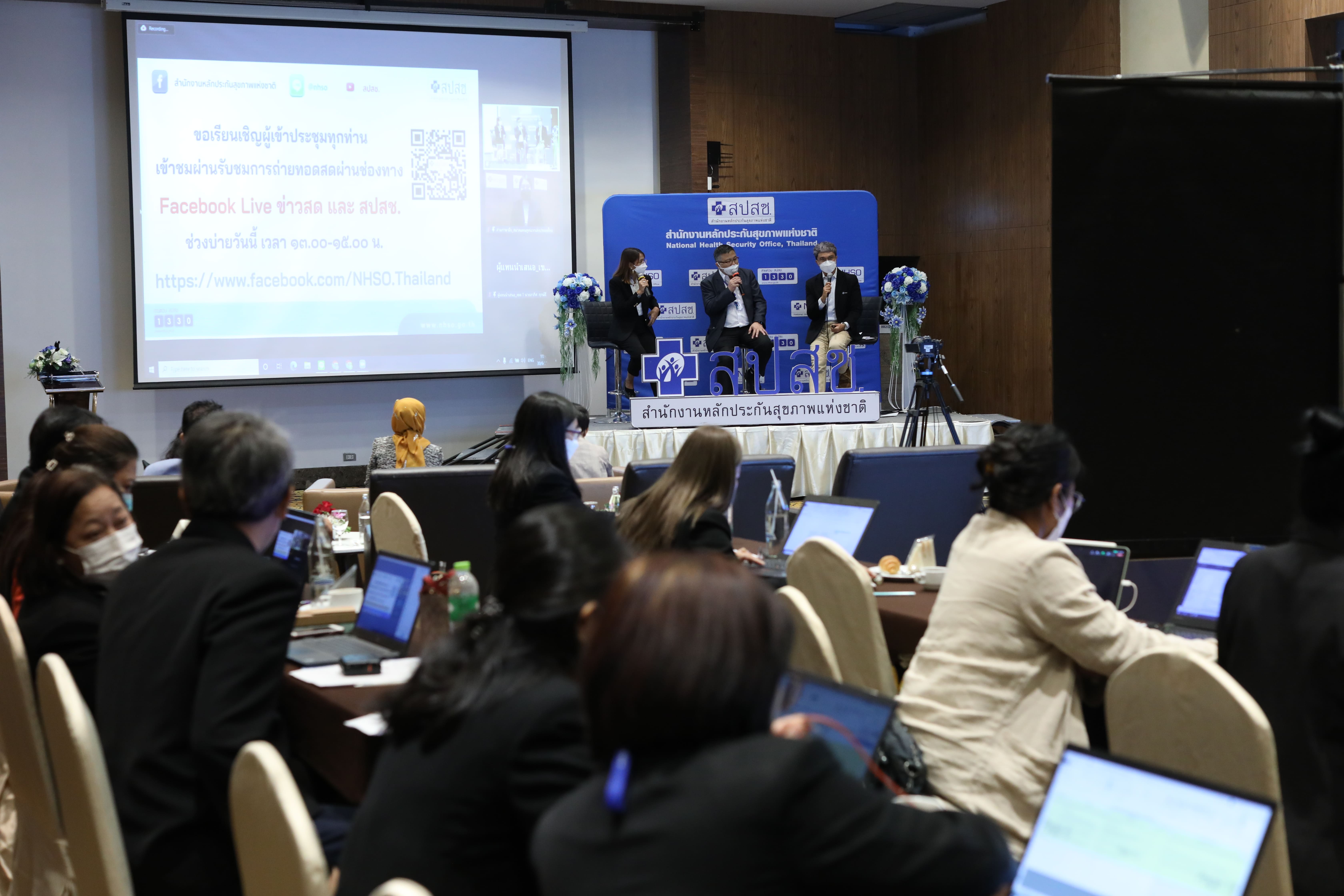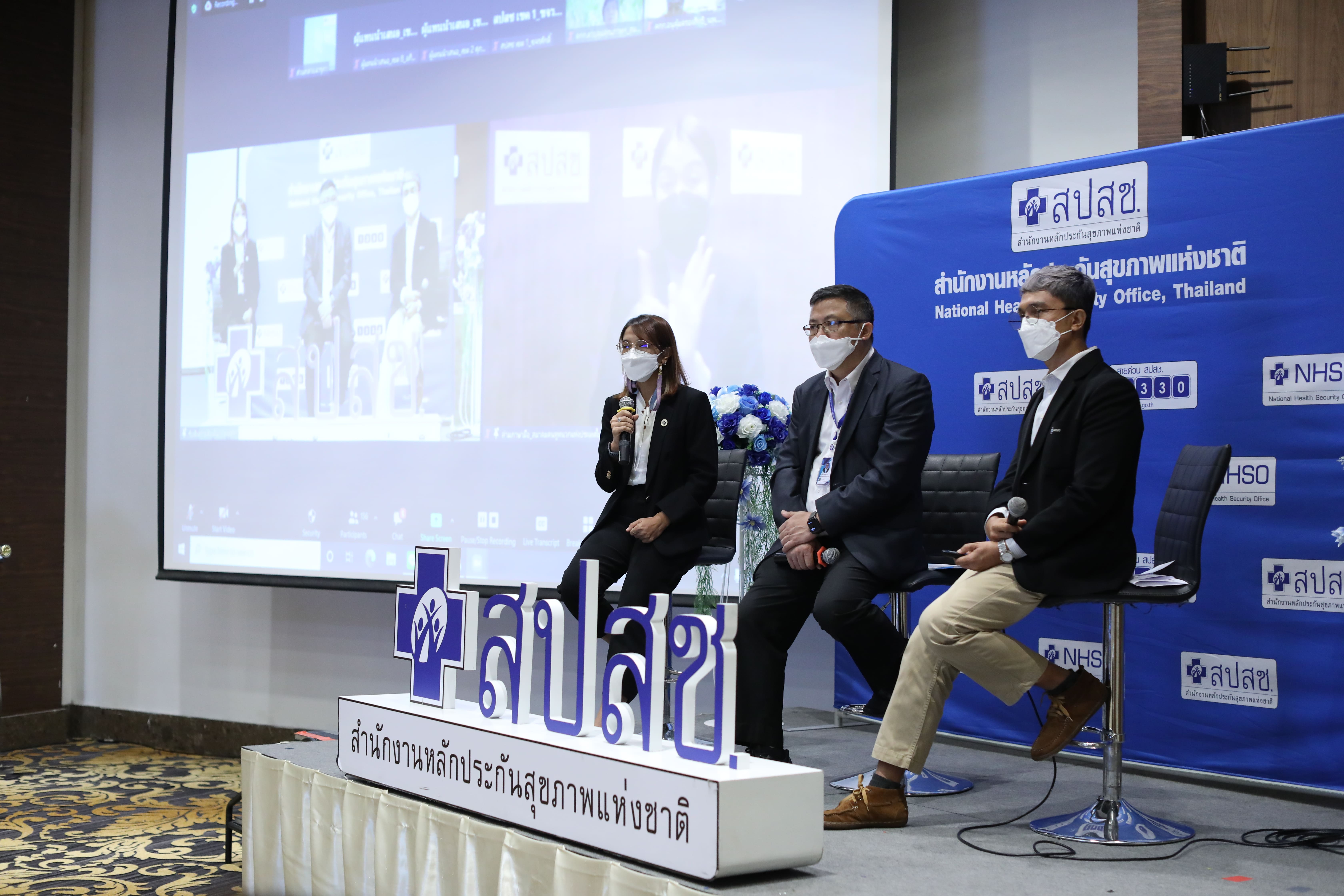
- Home
- DescriptionNews
Public voices valued highly in almost 2 decades of UCS’ constant development

Public voices valued highly in almost 2 decades of UCS’ constant development
Public access to essential healthcare services has improved dramatically for almost two decades since the inauguration of the universal coverage scheme (UCS), also known as the 30-baht for all treatments programme.
And a key factor that regularly contributes to the scheme’s continuous development is willingness to listen to the opinions of all stakeholders and translate them into action.
.jpg)
For the National Health Security Office (NHSO), operating the UCS is not only managing the budget to facilitate the operations of the healthcare scheme but also listening attentively to both receivers and providers of healthcare.
Every year, the NHSO organises an annual public hearing to let all parties concerned express their thoughts on how the scheme could be further improved as they together with the NHSO continue working toward the ultimate goal of the scheme all Thais really have access to necessary healthcare as their basic rights.
It’s been more than 19 years since the establishment of the UCS that now serves up to 48 million Thais and has won international recognition for its notable achievements in building and continuing to improve national health security, said Deputy Prime Minister and Minister of Public Health Anutin Charnvirakul, in his capacity as the chairman of the National Health Security Board (NHSB).
Numerous healthcare benefits have been included in the scheme’s benefit package, in response to calls and suggestions received through the annual hearing, he said.

They include more freedom for patients with end-stage kidney failure to choose a method of kidney dialysis that best suits their needs, flexibility for all patients in choosing a primary healthcare facility of their choice when seeking a service, an electronic patient transfer system, and a programme allowing cancer patients to choose a cancer-treating facility they find most convenient.
Among many other new benefits added to the scheme’s benefit package over the past years are the right to instantly switch from one primary care unit to another (without having to wait for 15 days as in the past), more free high-cost treatments, expansions of the National List of Essential Medicines (NLEM) (aimed at improving public access to necessary drugs), and most recently the provision of adult diapers to bed-ridden and disabled patients.
“Indeed, opinions submitted by all parties, namely patients, medical professional organisations, and general members of the public, are always treated as an important part in the constant improvement of national health security,” said Mr Anutin.
The NHSB and the Quality and Standard Control Board (QSCB) are required under the 2002 National Health Security Act to listen to public opinions regarding the UCS, which is treated as a core mechanism in allowing all stakeholders to have their say in the improvement of the healthcare scheme, said Dr Jesada Chokdamrongsuk, the chairman of the NHSO’s sub-committee on social communication and public hearings.

Usually, the annual hearing is conducted on seven key areas, namely what new healthcare benefits should be added and which existing benefits should be expanded, how to further improve the healthcare service quality, what can be done to improve the NHSO’s operations, how to better manage the UCS fund, how to enhance the efficiency of the UCS fund management at a local level, how to continue improving public participation and how to improve public awareness about and protection of healthcare rights of the people.
On top of that three special topics were included into this year’s event, namely how to manage the healthcare scheme in the post-pandemic era, what special step should be taken to maximise the development of the UCS, and how to encourage Thai people to use more services of health promotion and disease prevention offered under the UCS, said Asst Prof Yupadee Sirisinsuk , deputy secretary-general of the NHSO.
More than 7,000 people have participated in the annual public hearing this year, conducted both online and on-site, and a total of 693 proposals were received from these participants, she said.
All these suggestions have been screened and sorted twice until they were merged into 33 main proposals, she said.
Honestly, she said, a number of suggestions were found to be misunderstanding about the UCS and when those who made them were given a proper explanation, they appeared to understand.
Several other suggestions were merged into a smaller number of proposals as they dealt more or less with the same things, she said.
“Let me assure you that all proposals count and voices have been heard. All of these opinions have been treated as the input into efforts to keep improving the UCS,” she said.
Along with this year’s hearing, a forum was conducted to allow several stakeholders to express their views on how they have observed improvement of the UCS in accordance with their opinions in the previous hearings.
Speaking at the seminar, Sub-Lieutenant Pramote Taptim, city clerk of Pattaya City, said he has observed constant improvement in the UCS’ benefit package as the NHSO and the Ministry of Public Health continue updating the scheme’s benefit package in response to public demand for good healthcare.
In the begging, the benefit package offered under the UCS apparently wasn’t on par with that of the other health schemes, he said.
But now that the UCS’ benefit package has been being developed for almost 20 years, the hard work has paid off, he said.
“The UCS now serves people of all groups very well,” he said.
One suggestion, he said, he would like to make was that primary care units should keep improving their healthcare services to the point when most patients trust them and feel they no longer need to travel all the way to a hospital for services they actually can have at a primary care unit close to their home.
More private clinics should be included in the UCS’ primary care network, he said.
More importantly, he said, these primary care facilities should lead a role in raising awareness about the importance of health promotion and disease prevention and support the people to begin promoting their good health and preventing themselves from becoming ill.
“If they understand and act accordingly while their access to health promotion and disease prevention services improves, the number of patients needing medical treatment will decrease,” he said.

Sakchai Thanarat, director of a sub-district health promotion hospital in Pathum Thani, admitted that he himself had actually doubted in the beginning whether the public hearing carried out every year would be taken seriously.
But throughout years of him taking part in the annual hearing and observing changes in the UCS’ healthcare benefits, he now strongly believes the hearing certainly is a key mechanism in the development of the UCS.
The improvement in the reimbursement of primary care units for services they offer to COVID-19 patients, for instance, he said, came after these units had made their suggestions to the NHSO, which was the proof of the NHSO’s attention given to these service providers’ problems and prompt action to improve them.
In the future, he said, he would like to suggest the NHSO prepare for possible changes in the event primary care units will have to be transferred to be under the local administrative organisations instead of the Ministry of Public Health.
Sirintip Kudtiyakarn, president of the Thai Cancer Society (TCS), said she now expects more inclusions of cancer screening and prevention services into the UCS’ benefit package.
///

